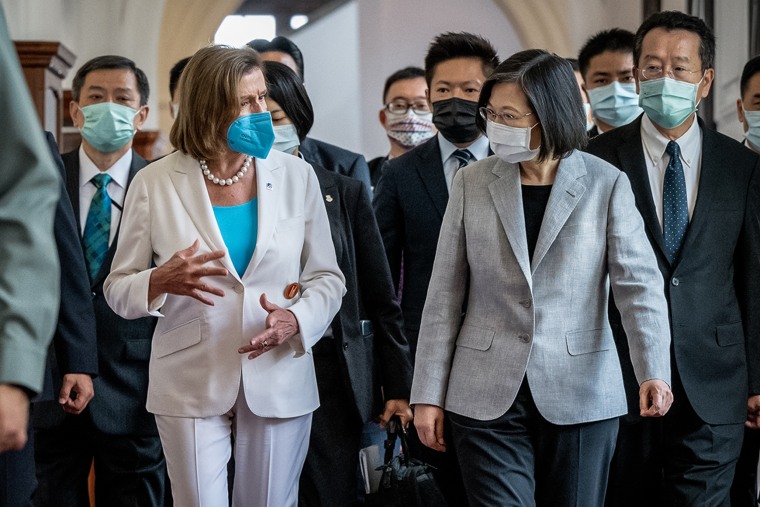“We need to train them so that they are not afraid. We need to train them to be better prepared,” said Flight Commander Chia-Hsien Chao, 34, an instructor at the base who also graduated from the Air Force Academy.
Taiwan defense officials say a turning point was the trip last August by Nancy Pelosi, who, as Speaker of the House at the time, was the highest-ranking US official to visit the island in 25 years. China strongly opposed and condemned Pelosi’s visit, which it viewed as promoting Taiwan independence, and responded after she left with live-fire drills that encircled the island for the first time.
Since then, China has stepped up its military activities around Taiwan, including dispatches to the island on an almost daily basis. Planes also cross the median line, an unofficial boundary in the Taiwan Strait, more regularly.
On Wednesday, Taiwan’s Defense Ministry said that as of 6 a.m. local time (6 p.m. Tuesday ET), it had detected 26 Chinese military aircraft, including nine that crossed the median line or entered the identification zone of Taiwan’s self-declared air defense around the island in the last 24 hours.
China also simulated an air and naval blockade around Taiwan and practiced precision strikes in exercises held in April after Taiwanese President Tsai Ing-wen met with Pelosi’s successor, House Speaker Kevin McCarthy, in California.

Joseph Wu, Taiwan’s foreign minister, said most Taiwanese government officials share US Defense Secretary Lloyd Austin’s assessment that war over Taiwan is «neither imminent nor inevitable.»
«We do not see the threat [from China] as imminent, but the threat has been increasing. It’s very obvious,» Wu said.
Taiwan has 210,000 active members of its military, compared to China’s more than 2 million, but it aims to make the most of those numbers by improving defenses and intensifying training of troops and reservists. The island is extending conscription for men from four months to a year starting next year, and is pressing the US to speed up delivery of an additional 66 F-16s Taiwan bought in 2019.
Pilots at the Taitung base expect the planes, considered crucial to the island’s defense capabilities, to arrive there within the next two years. They would increase the size of Taiwan’s F-16 fleet to more than 200, one of the largest in Asia.
China regularly voices its opposition to such arms sales, accusing the United States of interfering in China’s internal affairs and worsening tensions in the Taiwan Strait.
The United States, which has no official relations with Taiwan, has a longstanding policy of «strategic ambiguity» in terms of how it would respond if China attacked Taiwan. The idea is to discourage Beijing from invading and to discourage Taipei from doing something, like declaring independence, that might provoke a military response from its neighbor.
President Joe Biden, however, seemed to steer clear of strategic ambiguity by saying repeatedly that Washington would step in to defend Taiwan. Each time, the White House later said that US policy on the island had not changed.
Ultimately though, Taiwanese officials say they know the island must be as prepared as possible to defend itself.
“If we are not willing or able to defend ourselves, I think we have no right to ask any other country to help Taiwan,” Wu said.

